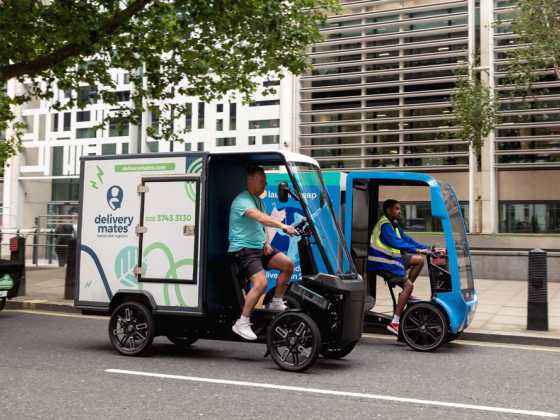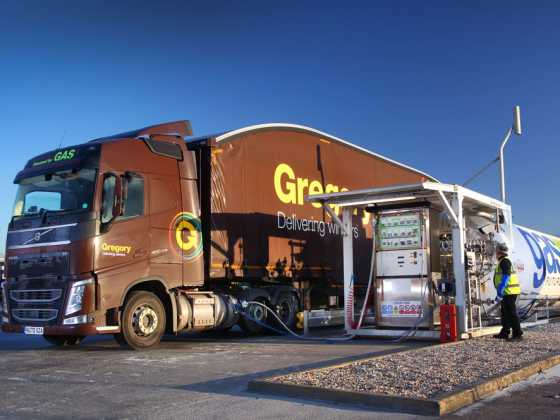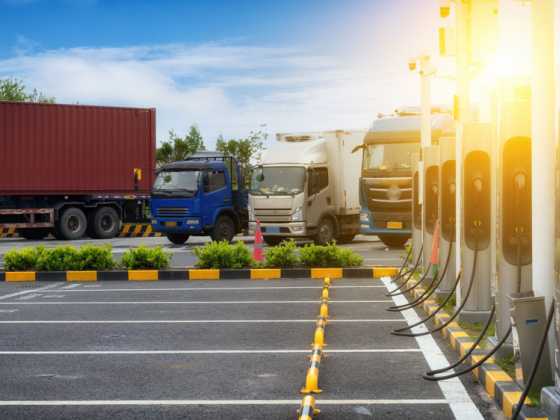A chat with the AA's Stuart Thomas

Stricter environmental measures are shaping the way fleets operate. We talk to the AA's Stuart Thomas about some of the issues concerning commercial fleet operators when it comes to running a greener fleet
Measures by the government to clean up illegal levels of air pollution may affect fleets operating in urban areas if they do not have emission compliant vehicles. This could pose challenges for some SMEs who cannot afford to upgrade their van fleet. Given that London already has an Ultra Low Emission Zone in operation, and other cities are due to start their Clean Air Zones in the next few months, what support should van fleets be given?
“We all recognise that vehicles for SMEs pose a significant challenge," comments Stuart Thomas, director of fleet and SME services at the AA. "This is a group which has already faced many obstacles in the current business climate, and the expectation that everyone will be able to afford to upgrade their vehicles immediately is patently unrealistic. Likewise, with limited choice on the market now, especially when it comes to zero emission vehicles which can meet payload and range requirements, SMEs will need convincing of the benefits of making a change.
“It is important to look at how we incentivise organisations into cleaner, compliant vehicles. The message needs to be about education and whole life costs or total cost of ownership. We need to move the conversation past initial investment and look at the wide variety of options available – from Euro 6 and Euro 7 diesels through to electric vans. Incentives could include retaining the workplace charging grant, scrapping VAT on EV sales.”
An end to petrol and diesel
The government is consulting on plans to bring forward the end date for the sale of new petrol, diesel or hybrid vans from 2040 to 2035.
This follows Committee on Climate Change’s report on what is needed in order for the UK to meet its net zero carbon target by 2050. The report says that 2040 is too late for the phase-out of petrol and diesel cars and vans, and current plans for delivering this are too vague.
Does this new proposed end-date cause a particular problem for van operators, given the limited choice of larger electric vans and long waiting lists?
“The short answer is yes," says Stuart. "The longer discussion is about whether new compliant and fit-for-purpose products are going to be available to meet operational demand in time. Most fleets and businesses will be looking for their commercial vehicle investments to pay off over the medium to long-term. Decision-making needs to consider policy today as well as any changes on the horizon. That means we need clarity, direction and investment from policymakers, as well as education for businesses on how to best calculate whole life costs.
“While there are more models coming to market over the next 24 months, the availability of batteries remains a key challenge. We’ve called for UK investment in gigafactories to keep up with demand and improve supply of batteries. It would be good to see bold steps being taken in this area.”
Last mile deliveries
As most air pollution problems are concentrated in urban areas, there has been increasing focus on greening the last mile fo logistics. So what can be done to eliminate the emissions from the 'last mile' of deliveries?
“Integrating transport is one solution to managing ‘last mile’ deliveries," says Stuart. "Most delivery businesses use local distribution hubs. Smaller trucks and delivery vehicles are already ‘delivering local’, keeping larger vehicles out of cities, while organisations such as the Royal Mail have been ‘delivering on foot’ for years.
“While it’s subject to government approval, there could be a role for micro-mobility, such as e-scooters and e-bikes, to help tackle the problem in the suburbs in the future.”
Fuel-choice aside, technology can also help fleet operators become more efficient. But Stuart advises that introducing technology for the sake of it doesn’t work. He explains: "We need to begin by understanding the improvements technology can bring, whether that’s delivering efficiencies in routing, loading, driving habits, payloads, spotting faults with the vehicles, or reducing vehicle usage. Vehicle purchases need to be properly planned and vehicles used optimally. More information can be found in our latest Operational Fleet Report in collaboration with Rivus Fleet."






